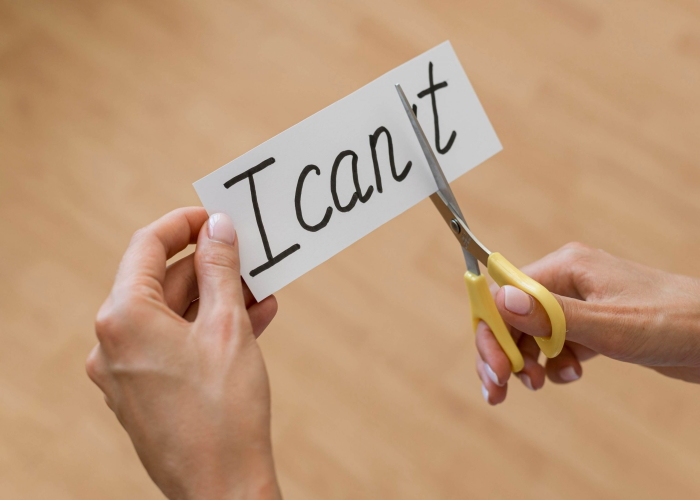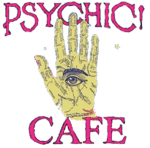Most of us are familiar with the power of words. In fact, entire fields have been dedicated to the study of words, such as Neuro Linguistic Programming.
I’d like to explore how we use words in our everyday life, often to our detrminent.
Words are the first act of creation. When we say something, or put it in writing, we are taking our thoughts or emotions and stamping them into a concrete reality.
Some of the words or phrases may be obvious, and some may be words that you
hadn’t even thought about that you find yourself using in your daily life. I’d encourage you to take a look at the words you use, and choose your words carefully.
1) TRY
How many of us have said things like, “I’m going to try to lose weight,” or “I’d like to try something different?” The word “TRY” automatically gives us an escape route. “I’m going to TRY….” but if I don’t like it, or if I don’t succeed…. To me, it seems that you either do it or you don’t, you don’t try to do it. So instead of saying, “I’m going to try to lower my voice,” why don’t we just eliminate the word try altogether and say, “I’m going to lower my voice.
2) You MAKE me…
How many of us in a disagreement have said to our partner or co-worker, “You
make me so mad,” or “you make me feel like?” When you say somebody or some “thing” makes you feel a certain way, you are basically taking responsibility off yourself and placing it outside yourself. No one can make you feel a certain way. You make yourself feel that way. No thing can make you feel hurt. You feel hurt.
3) God Awful
Does anyone remember this “slang” term used to describe something miserable,
or absurd, or downright ugly? Recently I was making a joke about those “God awful”
hospital gowns that are open in the back. Then a friend of mine brought it to my attention that the words God and Awful don’t belong in the same sentence together.
4) Filthy Rich
How many of us have seen a movie star on television, or someone driving in a
limo and said that person is “filthy rich.” By combining the word “filthy” and “rich” we are equating money as dirty.
5) I can’t believe it…
Have you ever won a prize, or received a bonus, or some other exciting news
and then said, “I can’t believe it?” What I realized is that when we say something like
this when something good happens we are really implying that we can’t believe that the good happened. We can’t believe that something “good” would happen to us. Winning prizes, getting raises, achieving a goal are natural parts of our lives. It is our divine birthright to receive and express all the good in the Universe. When we use phrases like, “I can’t believe it,” we invalidate that the “good” is part of our natural heritage.
6) That just “Kills” me
How many of us have ever heard a funny joke, or witnessed something really
absurd and said, “that just kills me.” It reminds me of when I used to take call for the
hospital and would get called in for an emergency and my ex would say “break a leg.”
Do we really choose to manifest things like “killing” ourselves and “breaking” other
people’s body parts?
7) WANT
How many of us have said, “I want a new car,” or “I want some peace of mind.” The
word “WANT” has a sense of desperation to it. When you want something you usually first are saying that you do not HAVE that item. In the Sedona Method, I learned to substitute the words “allow myself to have” in place of the word want. So instead of saying, “I want to be abundant,” I now say, “I allow myself to be abundant.” The former statement is much more life affirming and active.
8) Happy
How many of us have said, “that would make me happy?” Or, “I’ll be happy
when…” The word “happy” is based on external circumstances. It implies that if you
get this specific thing, or you have this specific outcome you will achieve this state.
Happiness is based on external conditions, whereas JOY or PEACE are based on inner conditions.
9) HOPE
I “hope that she gets the job.” or I “hope” that it all works out. This is another
“weak” word that implies a sense of desperation. We could easily replace sentences
like, “I hope I get the job,” with “I know that I will get the job if the job is for my highest
good and the highest good of the employer.”
10) HATE
What is one of the worst four letter words in our vocabulary? HATE. Hate is
a strong word with a strong emotion. How often do we use this word in our everyday
conversation? I know I find myself saying things like, “I hate it when my find gets cold,” etc. Yet our subconscious minds still have to go to that place of “hate” when we use the word. It can’t tell the diffference between hatred for another person, or hatred toward food getting cold. Since we are energetic beings creating our reality, we would benefit from avoiding use of words such as “hate.” It’s like that infomercial that says “hate” is a four letter word, and so is “love,” which will you use?
11) NOT
Neurolinguistic programming says that the subconscious mind is unable to
differenciate the word “not.” So instead of saying, “I’m not sick,” your subconscious
mind hears, “I am sick.” It’s almost like saying, “don’t think of pink elephants.” What
does your mind do? Thinks of pink elephants. It is wise to word things in the positive.
So instead of saying, “I am not sick,” affirm the results you desire, by saying, “I am
healthy.”
I know that I have given you many things to ponder. I’d encourage you to think of
other words or ways you use words that may not be producing the results you desire. If you have some you’d like to share with me please email them to lisa@lisahepner.com.
Remember choose your WORDS wisely.
By Lisa Hepner





